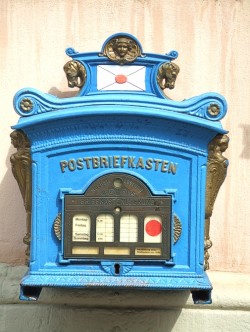Letters to the Editor | January 24th, 2016

To the editor:
I am tremendously excited at the prospect of the tallest building in North Dakota someday soon coming to downtown Fargo. I have no doubt that this will be a fantastic addition to the area and will draw in new business to our city. I know this project will be a great success for the Kilbourne Group. All the more reason why public tax dollars should be left out of the equation.
My stance on special incentives for private development is not limited to the Kilbourne Group, a fine company that has done as much for downtown as any organization. On the contrary, I don’t begrudge them or anyone else for seeking incentives. Why shouldn’t they if the Commission is so willing to give them out? I am guessing you reading this take the full deduction on their tax returns. This is a local government problem, not a business practice problem.
In my role as Commissioner, I have been approached by multiple large and small developers who are interested in how taxpayers can further their dealings. In each case, I have held a consistent view and I want to explain my position to the taxpayers of Fargo.
Instead of offering special deals to a City Commission chosen select few I have fought for a consistently low, predictable, and sustainable tax rate. From my perspective, that is how government can aid in generating long term growth and wealth for any community.
My approach also offers a market driven, organic, and fair playing field where residents choose where to spend their money (not the government) based on their own needs, wants, and fiscal situation. I agree with people who say that infill is popular and smart growth. Where we disagree is how that happens, and I believe that if infill is the most popular, economical, and attractive option, the free market will bear that out, free from government intervention.
Simply put, it is directly contradictory to suggest that infill is the most popular and economical option, but the free market cannot sustain it, obviously implying subsidizes are required. That is the quintessence of doublethink.
Proponents for special incentives claim:
Development will bring in new business, jobs, and money. True, however this is true for any development, the vast majority of which are not publicly subsidized. No matter if it is a new home, restaurant, or a skyscraper, all of these help drive our economy. Let it be known, the majority of businesses in Fargo are small businesses. They are no more or less important than large businesses. Should we incentivize all development because it helps grow our economy? Of course not. Couldn’t happen; therefore the de facto position of the Fargo Commission has been to pick winners and losers. The irony, if we had 20% lower property tax, if my plan was in place, these incentives would not be necessary. We need not pick winners and losers.
“But for”? Would this happen “but for” incentives? Developers will always say, “No”. The reality is most of projects that ask for tax incentives are profitable day one, just not to the extent that the developer would like. If we add incentives it simply increases the net profit faster at the expense of you who are paying the full tax rate for your home or business. This is nothing short of corporate welfare. Additionally, we run the risk of creating an economic bubble, which is what I fear we are doing downtown when pumping unnatural tax dollars in.
I am for eliminating or reducing all incentive programs and in their place a new tax system that is consistently low, sustainable, and predictable like the 20% property tax reduction I suggested and Dave Piepkorn supported. That is how government can help grow the economy in Fargo over the long term.
Taxpayers are not piggy banks. Commissioners are not investment bankers. This is not the role of local government.
Tony Gehrig,
Fargo City Commissioner
January 24th 2026
December 18th 2025
August 19th 2025
June 19th 2025
June 2nd 2025
_(1)__293px-wide.jpg)



_(1)_(1)_(1)_(1)_(1)__293px-wide.jpg)
__293px-wide.png)